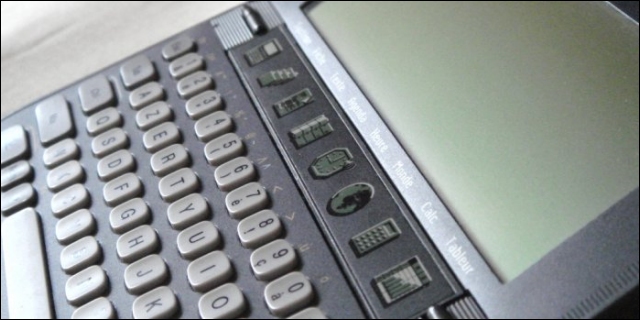This is of course a good example of the Innovators Dilemma, where a company creates a fantastic product A and keeps tweaking it and selling it, tweaking it and listening to all the positive feedback. At some point the global market wants product B, and you're left standing with product A. But product A feeds your bottom line - when should you jump?
Nokia has decided to jump, and while there will be a lot of studies, economic papers and discussion on the Feb 11th announcement and the decisions made before and after going public, I wanted to look back at history to show that a radical decision to gut your OS base and start again, while supporting the existing popular OS, not only gives Nokia some moral fortitude, but it was a vital part of the creation story of Symbian.
 Back in the day, the United Kingdom ruled the PDA world (that's going to get comments - Ed) through Psion. They had the leading pocket computer range in the marketplace in the Series 3, the fashion market had the Psion Siena, and plans were in place for a faster model that the market was asking for - the Psion 3mx.
Back in the day, the United Kingdom ruled the PDA world (that's going to get comments - Ed) through Psion. They had the leading pocket computer range in the marketplace in the Series 3, the fashion market had the Psion Siena, and plans were in place for a faster model that the market was asking for - the Psion 3mx.
And they go and announce a new device is on the way. With a new Operating System. That had no backwards compatibility with any of the applications that ran on the Series 3 range. David Potter, and Psion as a whole, spotted the innovators dilemma issue creeping up on them and did something about it.
That something involved an OS called EPOC. In polite company it was a play on words around epoch - and the legends that exist to this day about the Series 5 and 5mx are testament to that. In less upstanding company, the safe money was on "Electronic Piece of Cheese." But it would gain another name when it reached released v5.1. Symbian.
Looking back, Psion made the jump at one of the best points in the life cycle of the Series 3 range, and went on to greater success with the Series 5 (which went onto greater spiritual success in Symbian). Nokia may well have missed the optimum timing to make the jump to a new OS for whatever reason, but Stephen Elop has made that decisive move.
Psion could have coasted on with the Series 3 range for a few more years, but ultimately they would have been left behind as email and the web became the driving factors in a device. They burned a lot of their market, but many people moved along with them.
Now Nokia is doing to Symbian what was done to the Series 3 OS. They'd be the first to admit their timing is not as perfect as Potter's, but they have decided to make a big play and move towards a new paradigm. Sometimes it works (as it did with Psion) and sometimes it doesn't (go on, someone say the Sinclair QL). But it's a far better play than just watching a long slow glide to zero.
-- Ewan Spence, June 2011.
